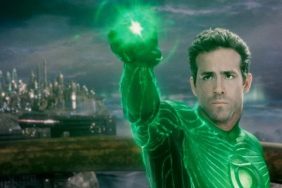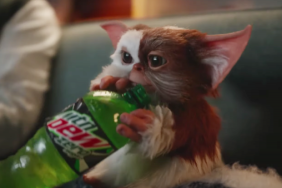
CraveOnline: What sort of material did you have to work with? He obviously appeared on TV a lot but behind closed doors, what he was like?
Tim Roth: Well, that’s where we got to play. So the stuff that’s written, I looked at the speeches, did all of that stuff, and interviews. I looked at a documentary that was kind of interesting and an interview with his son, talking about the years where he tried to apologize or tried to change people’s opinion of him.
But really, the behind closed doors stuff is the stuff that you just imagine and that’s where you can invent. […] I think once you establish what the guy is, then you see him in action when the doors are closed and he’s talking to the president. And probably checking out the drapes, the furniture and getting ready to move in really.
Is Ava DuVernay a very hands on director or does she just let you go?
A bit of both. I mean, I didn’t know what to expect. I was quite nervous about it. I’d spoken to her over the phone before, because she was already filming. They had such a tight shoot and then when I got in, I was kind of prepared but I got in and had to do a speech which was very full of bile. [Laughs.] Revolting behavior. She was cheering from the sidelines. She loved it. They needed Wallace to be in place. They needed it to be working for them so that they could tell the story.
But she’s hands on when needed. I mean, we would play around with dialogue, play around with performance, tweak it here and there.
“I know it’s a rude thing to say, but it’s kind of funny to me, that accent.”
It sounds like you didn’t have much time to prepare. Did you just have that dialect in your back pocket?
No, I got dialect coaching. It’s one of those ones, for some reason, English people I think connect to it maybe, but I certainly did. I know it’s a rude thing to say, but it’s kind of funny to me, that accent. And it’s very musical and the way that they accentuate words and use syllables and stuff is quite theatrical and interesting. Certainly the way he did too. So we put it together but it did come fairly quickly I must say.
One of my favorite scenes is between you and Tom Wilkinson towards the end. It’s just Lyndon B. Johson looking at George Wallace and he’s like, “Well, I don’t want to be an asshole.”
[Laughs.]
That’s a turning point of the Civil Rights movement. “Well, I don’t want to be George Wallace.” What was that back and forth like?
It was great. We just did it a bunch of times. I think it’s the last thing I did. We had a lot of fun with that, because the dialogue is good but then you can play what’s going on in their minds as well. By then we were in fairly good shape. It’s a good political scene.
I think I could tell what was going through your mind, I think, because Wallace has so many plans. Nothing is just what it is. Everything seems like a stepping stone to him.
Yeah, it’s great stuff. I think he would’ve taken a run. He really did want The White House. I think he would’ve made a run. He tried at the end of his political career. You couldn’t do three terms so he got his wife to run for governor. She got in. So then he could run the next time but he wanted to run on the Democrat ticket. [Laughs.] He wanted to run as a Democrat against Nixon. He was looking for that.
That would have been… interesting.
Wouldn’t that be fun? I mean, it wouldn’t be fun for people, but…
No, but historically it would’ve been interesting.
Historically it would’ve been really interesting…








